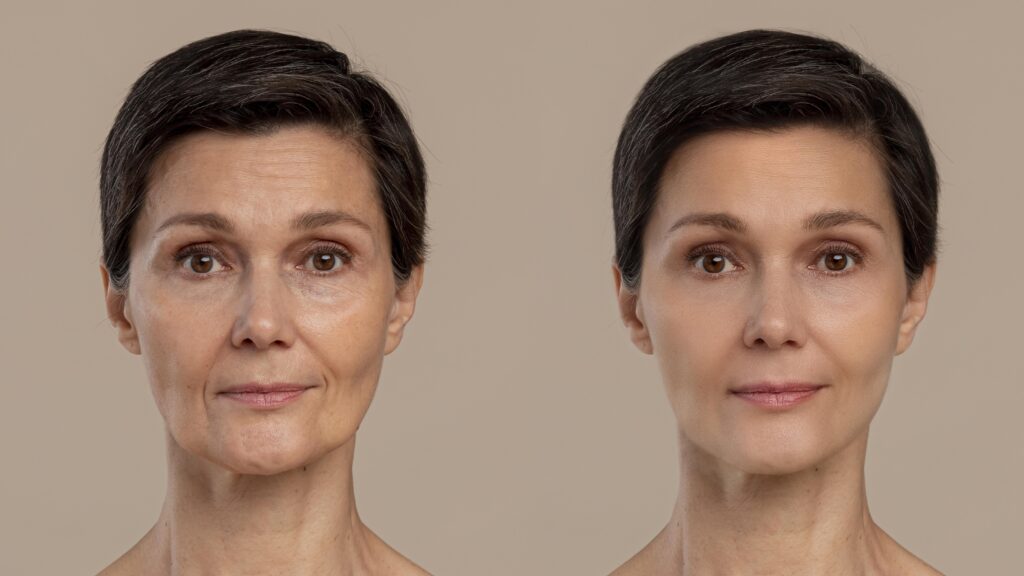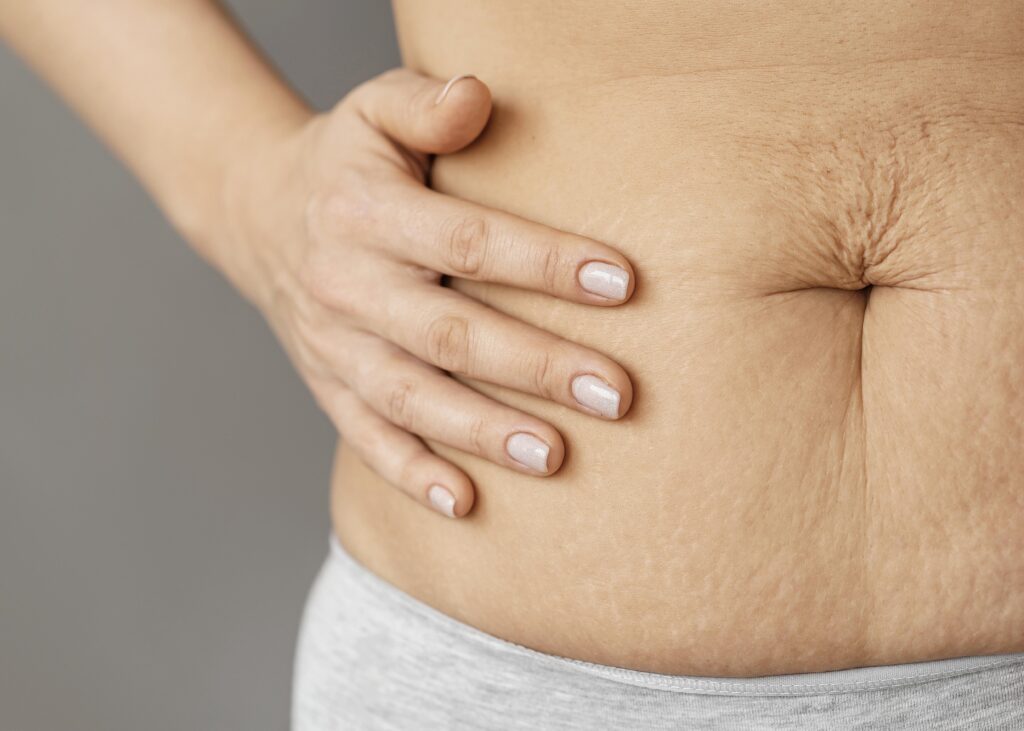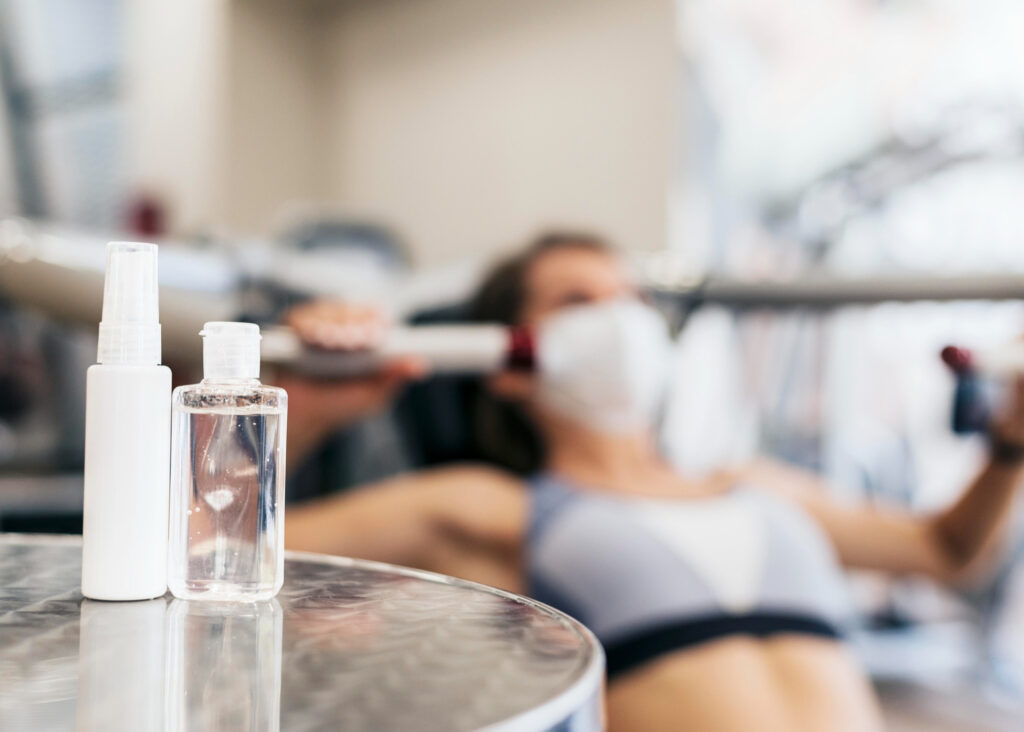
Acne. It’s a common skin woe that plagues millions of people worldwide. From blackheads and whiteheads to painful pimples and cysts, acne can take a toll on your confidence and self-esteem. With so many acne treatment options available, you might have come across something new: hypochlorous acid sprays.
But are these trendy sprays the answer to your acne woes? This article dives into the world of hypochlorous acid for acne treatment, exploring its potential benefits, drawbacks, and helping you decide if it’s the right choice for your skin.
Also Read: How to Use Vitamin C for Dark Spots: Fading Sun Damage and Evening Your Skin Tone
What is Hypochlorous Acid?
Hypochlorous acid (HOCl) is a weak acid naturally produced by white blood cells in our bodies. It plays a role in the immune system, helping to fight off bacteria and other pathogens.
Hypochlorous Acid Sprays for Skin: 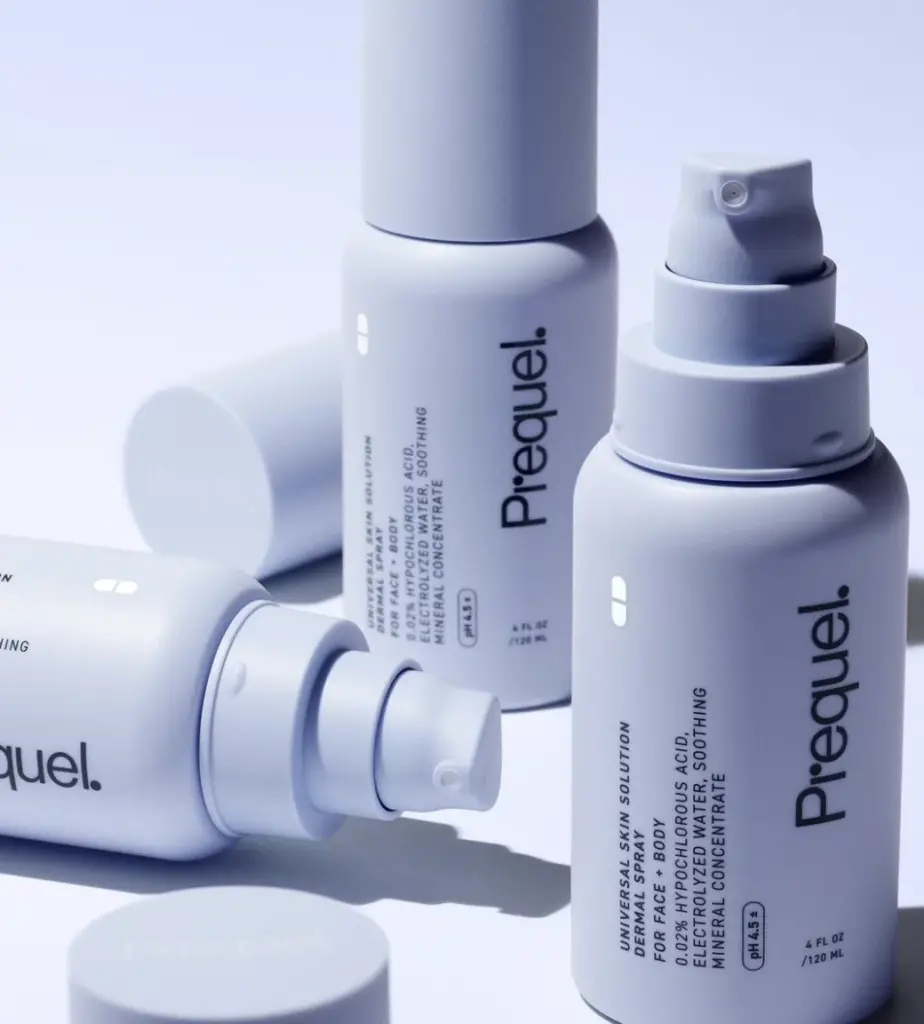
In recent years, hypochlorous acid has been gaining popularity as a topical skincare ingredient. Hypochlorous acid sprays are marketed for a variety of skin concerns, including:
- Acne: Some manufacturers claim HOCl sprays can combat acne-causing bacteria and reduce inflammation, leading to clearer skin.
- Wounds and Cuts: The disinfectant properties of HOCl might aid in wound healing.
- Eczema and Psoriasis: Some studies suggest HOCl sprays might help soothe these inflammatory skin conditions.
Benefits of Hypochlorous Acid Sprays for Acne:
Here’s how hypochlorous acid sprays might potentially help with acne:
- Antibacterial Properties: Acne can be caused by an overgrowth of certain bacteria on the skin. HOCl sprays might help kill these bacteria, potentially reducing breakouts.
- Anti-inflammatory: Inflammatory acne can be painful and stubborn. HOCl’s anti-inflammatory properties might help soothe redness and irritation associated with acne.
- Gentle on Skin: Unlike some harsh acne treatments, HOCl is generally considered gentle and non-irritating for most skin types.
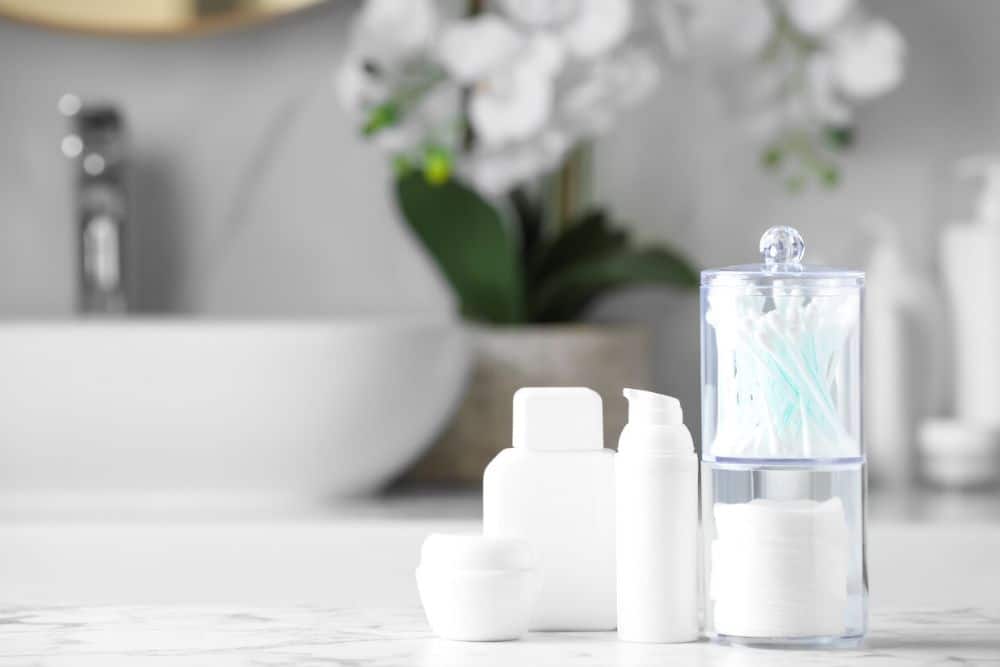
Drawbacks of Hypochlorous Acid Sprays for Acne:
While there’s some promise, there are limitations to consider:
- Limited Research: Most research on HOCl for acne is still in its early stages. More robust studies are needed to confirm its long-term effectiveness for acne treatment.
- May Not Be Strong Enough for All Acne: For severe acne cases, HOCl sprays might not be strong enough to tackle deep-seated pimples and cysts.
- Drying Effect: Some people experience dryness when using HOCl sprays. Using a moisturizer can help combat this.
Also Read: 10 Best Preservative-Free Anti-Aging Treatments: Fight Wrinkles Naturally!
Are Hypochlorous Acid Sprays Right for You?
Here’s what to consider before incorporating HOCl sprays into your acne treatment routine:
- Your Skin Type: HOCl is generally gentle, but if you have very sensitive skin, do a patch test on a small area of your arm before applying it to your face.
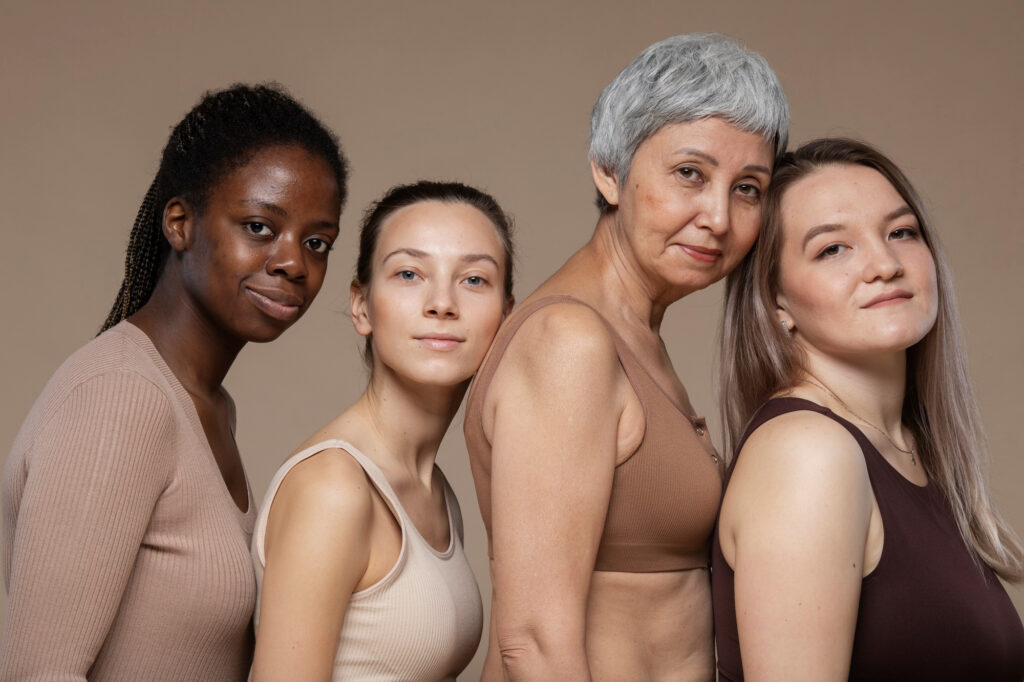
- Severity of Acne: For mild acne, HOCl might be a good option. However, for moderate to severe acne, it might be best to consult a dermatologist for a more targeted treatment plan.
- Combined Approach: HOCl sprays might be most effective when used alongside other acne-fighting ingredients like benzoyl peroxide or salicylic acid in a dermatologist-recommended routine.
Important Tips When Using Hypochlorous Acid Sprays:
- Follow Instructions: Always follow the manufacturer’s instructions for application and frequency.
- Start Slowly: If you’re new to HOCl sprays, introduce them gradually into your routine to see how your skin reacts.
- Moisturize: Since HOCl can be drying, using a gentle moisturizer is essential.
- Sunscreen is Key: HOCl sprays won’t worsen sun sensitivity, but sunscreen is still crucial for protecting your skin from harmful UV rays.
Alternatives to Hypochlorous Acid Sprays:
If HOCl sprays aren’t the right fit for you, here are some alternative acne treatment options:
- Over-the-Counter Products: Many over-the-counter acne treatments contain benzoyl peroxide, salicylic acid, or alpha hydroxy acids (AHAs) that can effectively combat acne.
- Prescription Medications: For moderate to severe acne, a dermatologist can prescribe stronger topical medications or oral medications like antibiotics or retinoids.
- Lifestyle Changes: Stress, diet, and certain medications can contribute to acne. Making healthy lifestyle changes might help improve your skin.
Remember: There’s no one-size-fits-all solution for acne. The best treatment for you depends on the severity and type of your acne, as well as your individual skin type.
Consulting a Dermatologist: Making the Most of Your Appointment
If you’re struggling with acne, consulting a dermatologist can be your best bet. Here’s how to make the most of your appointment:
- Gather Information: Before your visit, take note of your acne concerns, including the type and severity of your breakouts, your current skincare routine, and any medications you’re taking. This helps the dermatologist understand your situation better.
- Prepare Questions: Write down any questions you have about acne, treatment options, and potential side effects. Don’t hesitate to ask for clarification on anything you don’t understand.
- Be Open and Honest: Be upfront with your dermatologist about your skincare habits, lifestyle factors, and any allergies you might have. Open communication is key to developing an effective treatment plan.
- Realistic Expectations: Acne treatment takes time and consistency. Discuss realistic expectations for improvement with your dermatologist.
Also Read: Unveiling the Future: 15 Best High-Tech Skincare Devices in 2024
Dermatologists Can Offer a Range of Treatments:
A dermatologist can create a personalized acne treatment plan based on your specific needs. Here are some treatment options they might consider:
- Topical Medications: These creams, gels, or lotions can target acne-causing bacteria, reduce inflammation, and promote skin cell turnover. Common ingredients include benzoyl peroxide, salicylic acid, and retinoids.
- Oral Medications: For moderate to severe acne, oral antibiotics or retinoids might be prescribed to target acne from the inside out.
- Acne Light Therapy: Light therapy treatments use ultraviolet (UV) light or blue light to kill bacteria and reduce inflammation.
- Chemical Peels: Chemical peels use a controlled application of acid to exfoliate the skin and unclog pores, improving acne and promoting smoother texture.
- Extractions: For stubborn pimples, a dermatologist can perform extractions to remove blackheads and whiteheads safely and hygienically.
Lifestyle Changes for Clearer Skin:
While dermatologist-prescribed treatments are crucial, some lifestyle changes can also aid in acne management:
- Healthy Diet: Minimize processed foods, sugary drinks, and excessive dairy products. Focus on a balanced diet rich in fruits, vegetables, and whole grains.
- Stress Management: Stress can worsen acne. Explore relaxation techniques like yoga, meditation, or deep breathing to help manage stress levels.
- Regular Cleansing: Wash your face twice daily with a gentle cleanser and lukewarm water. Avoid harsh scrubbing or over-washing, as this can irritate your skin.
- Don’t Touch!: Resist the urge to touch or pick at your pimples. This can spread bacteria and worsen inflammation.
Additional Tips and Considerations
Here are some additional points to consider when deciding if hypochlorous acid sprays are right for you:
- Storage: Store HOCl sprays according to the manufacturer’s instructions. Typically, they should be kept cool and out of direct sunlight to maintain their effectiveness.
- Fragrance and Additives: Some HOCl sprays contain added fragrances or other ingredients. If you have sensitive skin, opt for fragrance-free and paraben-free formulas.
- Sustainability: The environmental impact of HOCl production can vary depending on the brand. If sustainability is a concern for you, research brands that prioritize eco-friendly practices.
The Takeaway: Finding the Right Approach for Your Skin
Acne can be a frustrating journey, but with the right information and approach, you can achieve clear and healthy skin. While hypochlorous acid sprays offer some promise for acne management, it’s important to weigh the potential benefits and limitations.
Here’s a quick recap:
- HOCl sprays might be a good option for mild acne due to their antibacterial and anti-inflammatory properties.
- For moderate to severe acne, a dermatologist-prescribed treatment plan is likely more effective.
- HOCl sprays can be used alongside other acne treatments as part of a comprehensive routine.
- Consult a dermatologist for personalized advice and a treatment plan tailored to your specific needs.
Remember, consistency is key! Whether you choose to incorporate HOCl sprays into your routine or opt for other acne treatments, sticking with your regimen and being patient will lead you on the path to clearer, more confident skin.
Final Thoughts: Finding the Right Path to Clearer Skin
Acne can be frustrating, but with the right approach, you can achieve clearer and healthier skin. While hypochlorous acid sprays might be a new option on the market, it’s important to understand their potential benefits and limitations.
Consulting a dermatologist for personalized acne treatment combined with healthy lifestyle choices is the most effective way to manage acne and achieve the beautiful, clear skin you deserve. Remember, consistency is key! Stick with your treatment plan and don’t hesitate to reach out to your dermatologist if you have any concerns or questions along the way.
Additional Resources:
- American Academy of Dermatology (AAD): [[https://www.aad.org/]] The AAD website provides a comprehensive overview of different acne treatment options.
- National Institute of Arthritis and Musculoskeletal and Skin Diseases: [https://www.niams.nih.gov/health-topics/acne] This resource from the National Institutes of Health dives into the causes and treatments for acne.
- The Mayo Clinic: [[https://www.mayoclinic.org/]] The Mayo Clinic offers insights into the symptoms, causes, and treatment options for acne.
By understanding the information presented in this article and utilizing the provided resources, you can make informed decisions about your acne treatment journey. Remember, you’re not alone! With the right approach and expert guidance, you can achieve clear, confident, and beautiful skin.
Are Hypochlorous Acid Sprays Effective in Acne Treatment? – A FAQ
Hypochlorous acid (HOCl) sprays have gained popularity as a new weapon in the fight against acne. But are they truly effective? This FAQ section dives deeper into HOCl sprays for acne, addressing common questions and helping you decide if they’re a good fit for your skincare routine.
- Can hypochlorous acid sprays really clear up my acne?
There’s some potential, but more research is needed. Here’s what we know:
- Antibacterial Properties: HOCl might help kill acne-causing bacteria on the skin’s surface, potentially reducing breakouts.
- Anti-inflammatory Effect: HOCl’s anti-inflammatory properties might soothe redness and irritation associated with acne.
- Limited Research: Most studies on HOCl for acne are preliminary. More robust research is needed to confirm its long-term effectiveness for acne treatment compared to established options.
- Are hypochlorous acid sprays safe for all skin types?
HOCl is generally considered gentle. However, here are some things to consider:
- Patch Test: If you have sensitive skin, do a patch test on a small area of your arm before applying it to your face to check for any irritation.
- Drying Effect: Some people experience dryness when using HOCl sprays. Using a moisturizer can help combat this.
- Consult a Dermatologist: If you have concerns about using HOCl sprays with your specific skin type, consult a dermatologist for personalized advice.
- Won’t hypochlorous acid sprays burn my skin like bleach?
No, HOCl sprays are much gentler than bleach. Here’s why:
- Concentration: HOCl sprays contain a much lower concentration of hypochlorous acid compared to bleach.
- Neutral pH: HOCl sprays have a neutral pH, making them less harsh on the skin compared to bleach, which has a high pH.
- If hypochlorous acid sprays are good for acne, can I just use them instead of other acne treatments?
For some, HOCl sprays might be a good first-line defense. However, consider these points:
- Severity of Acne: For mild acne, HOCl sprays could be a good option. However, for moderate to severe acne, they might not be strong enough. A dermatologist can recommend a more targeted treatment plan.
- Combination Therapy: HOCl sprays might be most effective when used alongside other acne-fighting ingredients like benzoyl peroxide or salicylic acid in a dermatologist-recommended routine.
- Are there any side effects to using hypochlorous acid sprays?
HOCl sprays are generally well-tolerated, but some people might experience:
- Dryness: As mentioned earlier, some users report dryness after using HOCl sprays.
- Temporary Stinging: In rare cases, there might be a slight stinging sensation upon application, especially on broken or irritated skin.
- How often should I use hypochlorous acid sprays for acne?
Follow the manufacturer’s instructions on the specific product you’re using. Generally, HOCl sprays can be used twice daily after cleansing your face.
- Do hypochlorous acid sprays have an expiration date?
Yes, HOCl sprays typically have an expiration date. Check the packaging for the specific expiry date and avoid using expired products.
- Where can I buy hypochlorous acid sprays?
HOCl sprays are becoming increasingly available. You can find them at:
- Drugstores and Pharmacies: Many drugstores and pharmacies now carry a variety of brands of HOCl sprays.
- Online Retailers: HOCl sprays are also available for purchase online from various retailers.
- Are hypochlorous acid sprays expensive?
The cost of HOCl sprays can vary depending on the brand and size. They generally fall within the same price range as other topical acne treatments.
- Should I consult a dermatologist before using hypochlorous acid sprays?
While not mandatory for everyone, consulting a dermatologist can be beneficial:
- Personalized Advice: A dermatologist can assess your specific acne concerns and recommend the most effective treatment plan, which might include HOCl sprays or other options.
- Addressing Concerns: If you have any pre-existing skin conditions or concerns about using HOCl sprays, a dermatologist can provide guidance and address any questions you might have.
